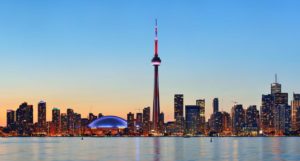Americas
Canada: Permitted flagpoling
Flagpoling is the term given to foreign nationals that immediately re-enter Canada to renew their current immigration status, instead of renewing via the inland system. There must be a legitimate reason for the work permit application, e.g. for Labor Market Impact Assessment (LMIA), Intra Company Transferee (ICT), etc.
Canadian immigration authorities occasionally disapprove of this process as it may clog their ports of entry – and in some cases – have restricted flagpoling to certain days of the week. However, it is technically a permissible process under relevant regulatory authorities.
When Covid-19 measures were put into place, the right to flagpole (on any day of the week) was stopped. The Canadian immigration authorities has resumed flagpoling providing the applicant meets requirements to seek a work permit at the port of entry and are entering from the United States.
Returning foreign national workers must meet Covid-19 measures. Such requirements are not applicable to those providing essential services. Anyone working from home or another isolated place can continue to while quarantining; the employer is responsible for salary and other commitments.
There are also current measures in place to expedite certain work permit applications inland, for instance, where someone is changing employers. This may alleviate some or all of the issues relevant to flagpoling.
This development is new and it is not clear how officers at ports of entry are implementing it. Serious considerations should be made before utilizing flagpoling procedures.
This summary was prepared using information obtained from Kranc Associates.
Disclaimer: The above information is provided for general information purposes only and should not be construed as legal advice. If you have any further inquiries regarding the applicability of this information, please contact Roberta Carnaccini, Global Operations Director, Immigration.
Asia-Pacific
Thailand: New tourist visa
The Thai Government has introduced a “Special Tourist Visa (STV),” a new tourism scheme that will allow foreign visitors to travel and remain in Thailand for up to 270 days. An effort to restore the local tourism industry that has been heavily affected by Covid-19, the scheme has been in effect since September 29, 2020, and will remain until September 30, 2021.
To apply, foreign visitors must meet the following requirements:
- Must be a foreign national with a long-stay intention (between 90 to 270 days) from countries considered to be at low risk of Covid-19 (list of countries is awaited).
- Must comply with Thailand’s Covid-19 public health policies and regulations, and accept a mandatory 14-day quarantine in an Alternative Local State Quarantine (ALSQ) at their own personal expense.
- Proof of payment for ALSQ.
- Proof of staying in accommodation after the 14-day quarantine, which could be one of the following:
-
- Proof of payment for accommodation after the 14-day quarantine has ended
- A copy of a title-deed for a condominium owned by the foreign visitor or relatives
- Proof of condominium or house rental
- Proof of down payment for buying or leasing a condominium or house
- Medical and travel insurance with a minimum US$ 100,000 coverage for Covid-19 medical treatment and a minimum 400,000 THB for other medical and accident expenses. The insurance must provide cover for at least 90 days.
Foreign visitors can apply for the STV at the Royal Thai Embassy/Consulate in their home/resident country. Fees are 2,000 THB per person.
Foreign visitors granted with STV will be eligible to stay in Thailand for 90 days. Before the first stay period expires, visa holders may apply for subsequent 90-day extensions at the local immigration office (with applicable fees). The period of stay must be consecutive and visa holders must always remain in Thailand to be eligible for the subsequent extensions.
This summary was prepared using information obtained from The Thai Embassy.
Disclaimer: The above information is provided for general information purposes only and should not be construed as legal advice. If you have any further inquiries regarding the applicability of this information, please contact Debra Jane Beynon, Regional Immigration Manager (APAC).
Europe, Middle East and Africa
Bahrain: Ten years visa for U.S. citizens
The Nationality, Passport and Residence Affairs (NPRA) in Bahrain announced a ten-year multi-entry visa for U.S. citizens on October 10, 2020. The ten-year visa will allow holders of American passports to stay for up to 90 days each visit.
Impact
U.S. citizens can apply through the website (www.e-visa.gov.bh) for a BD 64 fee. The new service comes in line with the decision to provide similar services to Bahraini nationals and unify fees between both sides.
Document checklist:
- Photocopy of applicant’s current valid passport (photo page).
- Copy of return air ticket.
- Copy of hotel booking in Bahrain.
- Copy of a stamped bank statement covering the last three months with an ending balance of no less than BD 300.
Entry conditions:
- S. citizens must not take up any paid or unpaid employment during their visit to Bahrain.
- S. citizens must be able to support themselves (and any dependents) during the visit.
- Passports must be valid for the length of time the U.S. citizen will be in Bahrain, or the length of the visa, whichever is longer.
Stay conditions:
- The visa can be used for multiple entries to the Kingdom of Bahrain; validity is ten years.
- Length of stay allowed is 90 days (per visit).
Proposed action:
The new visa does not change the length of stay permitted for a trip to the United States or Bahrain. It only changes the validity of the visa, allowing travelers to make as many trips as they like over the course of 10 years.
Bahrain and U.S. citizens can get visas for five to ten years which can be extended at their discretion for business and tourism trips. It does not apply to other visa types.
This summary was prepared using information obtained from the Ministry of Interior.
Disclaimer: The above information is provided for general information purposes only and should not be construed as legal advice. If you have any further inquiries regarding the applicability of this information, please contact Laxmi Vikraman, Regional Immigration Manager (EMEA).
We track policy changes in over 120 countries. Find out how we can help you in this short video.




